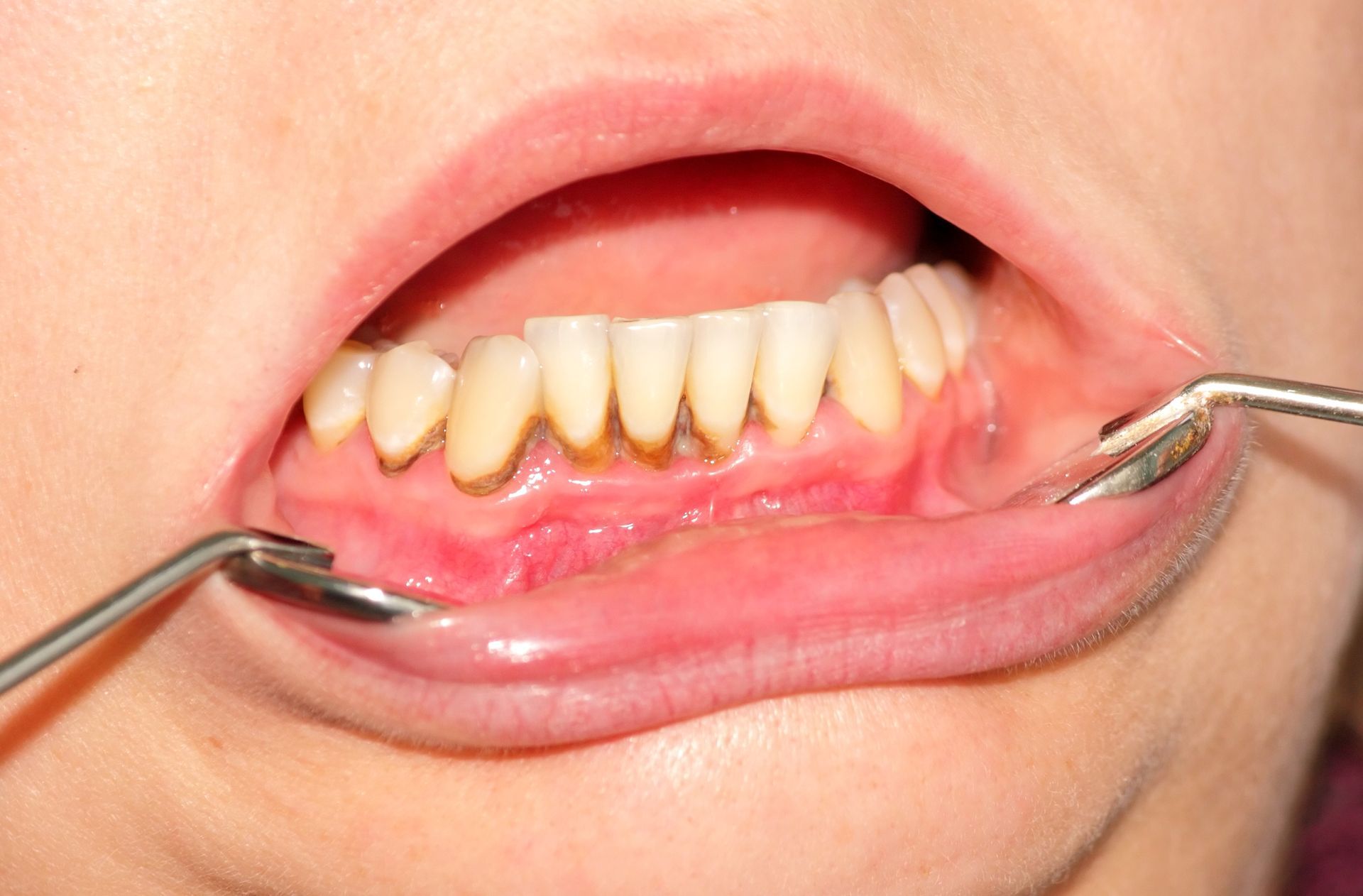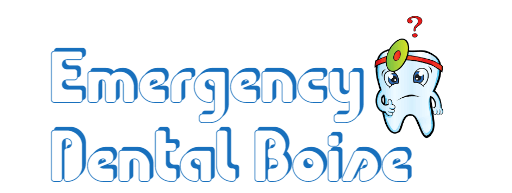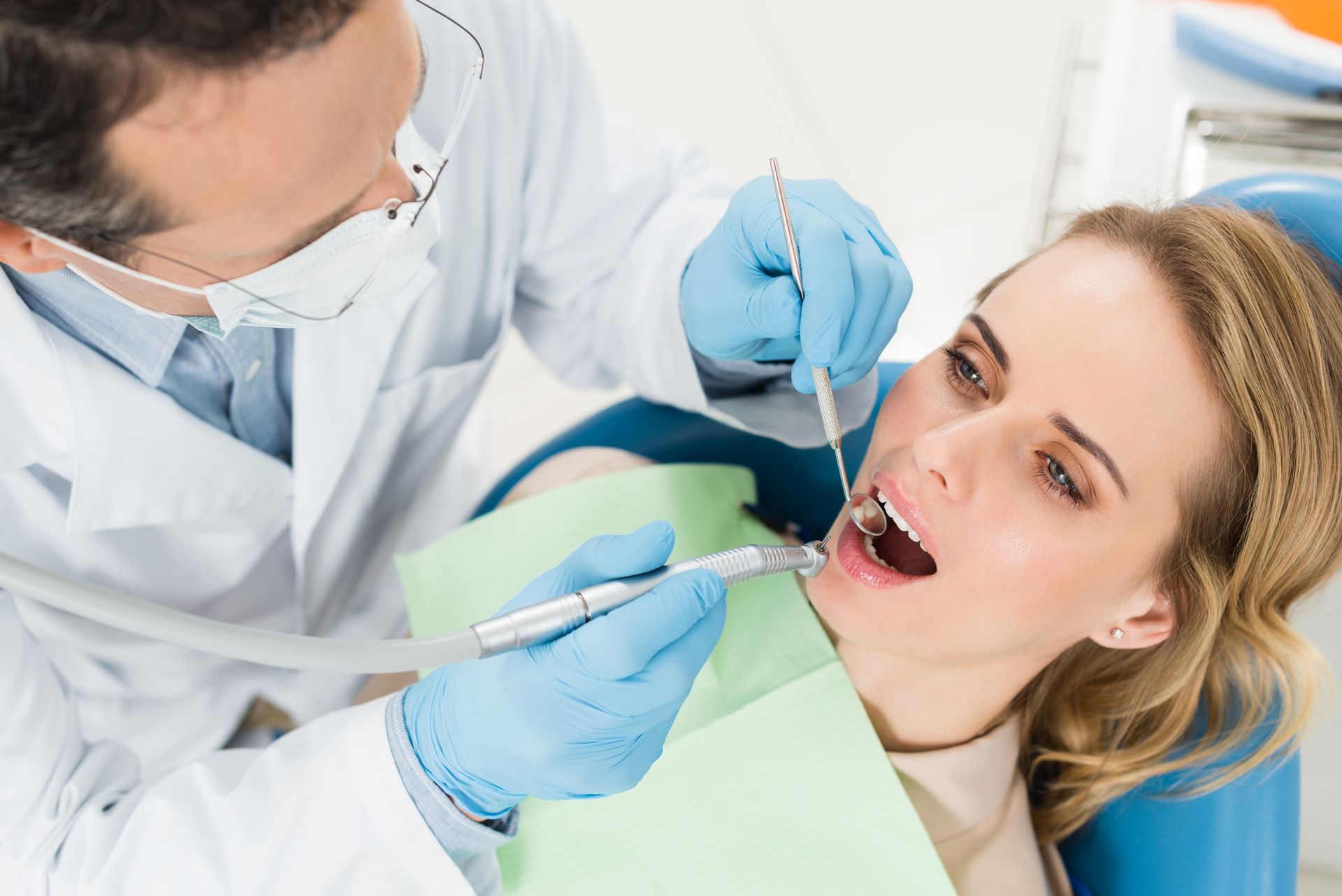Is Gum Disease A Life Threatening | Emergency Dental Boise

Gum disease is a serious oral health issue that has the potential to be life-threatening. It can affect people of all ages, genders, and backgrounds if left untreated. This article aims to provide an overview of what gum disease is, how it can become dangerous, and ways to prevent its development.
The first step in understanding any health condition is recognizing the signs and symptoms. Gum disease starts with inflammation of the gums around teeth, leading to redness and swelling that may cause bleeding during brushing or flossing.
If this continues over time without treatment, bacteria will accumulate at the gum line, resulting in infection and tissue damage within the mouth. In rare cases, severe periodontal disease can lead to systemic issues such as cardiovascular diseases, including heart attack and stroke. You can also go to a
walk-in dentist near me to help you get the best dental solutions for your situation.
Signs And Symptoms Of Gum Disease
Good oral hygiene habits are essential for reducing the risk of gum disease, also known as periodontal disease. This condition is caused by bacterial plaque and tartar buildup along the gum line, which can lead to inflammation and infection. Symptoms of gum disease include redness, bleeding during brushing and flossing, receding gums, bad breath, and loosening teeth.
- Red or swollen gums: One of the most common signs of gum disease is red, swollen, or tender gums. This is caused by the inflammation and irritation that results from the buildup of plaque and bacteria in the gums.
- Bleeding gums: Another common symptom of gum disease is bleeding gums, especially when brushing or flossing. This is a sign that the gums are inflamed and sensitive, and can be a warning sign of more serious gum disease.
- Receding gums: As gum disease progresses, the gums may begin to pull away from the teeth, creating gaps or pockets between the teeth and gums. This can make it easier for bacteria to collect and cause further damage.
- Bad breath: Persistent bad breath, even after brushing and flossing, can be a sign of gum disease. This is because the bacteria that cause gum disease produce sulfur compounds that can lead to bad breath.
- Loose teeth: In advanced cases of gum disease, the gums and bone that support the teeth can become damaged, leading to loose or shifting teeth. If left untreated, this can eventually lead to tooth loss.
- Changes in bite or jaw alignment: If the teeth begin to shift or the bite feels different, this may be a sign of advanced gum disease. As the gums and bone that support the teeth become damaged, it can affect the overall alignment of the teeth and jaw.
Causes Of Gum Disease
Gum disease, or periodontitis, is a serious condition that can lead to life-threatening complications if left untreated. It is estimated that nearly three out of four adults suffer from some form of gum disease. Understanding the causes and risk factors for gum disease is essential in order to prevent its progression and avoid associated health risks.
The best way to maintain healthy gums is through preventive measures such as:
- Establishing good oral hygiene habits at home
- Brushing teeth with fluoride toothpaste two times per day
- Flossing between teeth at least once every 24 hours
- Using an antiseptic mouthwash as needed
- Seeking periodic professional treatment from a dental hygienist
- Regular scaling and root planing (periodontal therapy)
- Application of sealants or topical fluorides
By following these steps, individuals can effectively manage their own oral health while reducing their risk for developing more advanced stages of gum disease.
Treatment Options For Gum Disease
Gum disease, also known as periodontal disease, is a common condition that affects millions of people worldwide. It is caused by the buildup of plaque and bacteria in the gums, which can lead to inflammation, bleeding, and eventually tooth loss if left untreated. Fortunately, there are several effective treatment options for gum disease that can help prevent further damage and restore oral health.
- Professional cleaning: The first step in treating gum disease is to have a professional dental cleaning, also known as scaling and root planing. This process involves removing the plaque and tartar buildup from the teeth and gums, and smoothing out any rough spots on the tooth roots that may be contributing to the disease. This procedure is typically done under local anesthesia to ensure patient comfort.
- Antibiotics: In some cases, antibiotics may be prescribed to help control the bacterial infection that is causing the gum disease. This may be in the form of a pill, a mouthwash, or an antibiotic gel that is applied directly to the gums.
- Surgery: If the gum disease has progressed to a more severe stage, surgery may be necessary to repair the damage and restore oral health. This may involve gum grafts, bone grafts, or even tooth extraction in extreme cases.
- Laser therapy: Laser therapy is a relatively new treatment option for gum disease that uses a special laser to remove bacteria and infected tissue from the gums. This procedure is less invasive than traditional surgery and can often be done in a single office visit.
- Home care: In addition to professional treatment, it is important for patients to practice good oral hygiene at home to prevent further damage and recurrence of gum disease. This includes brushing twice a day, flossing daily, and using an antiseptic mouthwash to kill bacteria.
Potential Health Risks From Gum Disease
Treating gum disease is critical in order to prevent further damage and deterioration of oral health. As such, it is important to be aware of the potential risks associated with this condition if left untreated.
Poor oral hygiene habits coupled with unhealthy dietary choices can contribute to a heightened risk for serious complications related to gum disease. The most common side effect of neglecting one's oral hygiene routine is inflammation or infection that affects the gums and surrounding tissue. This type of infection can lead to pain, swelling, and difficulty eating or speaking normally.
Additionally, severe cases of gum disease may require more aggressive treatments such as surgery or antibiotic medications which can have their own associated risks. Furthermore, research has suggested that individuals suffering from periodontal (gum) disease may also experience greater risk for other conditions such as diabetes, heart attack, stroke, respiratory issues and even certain types of cancers.
Making lifestyle changes like adopting an improved diet and increasing focus on daily brushing and flossing routines are essential strategies for preventing any kind of gum-related illnesses from occurring in the first place. It is clear then that practicing proper oral hygiene habits along with making necessary dietary adjustments are key elements in maintaining long-term dental health.
How Do I Know If I Have Gum Disease?
Gum disease is an infection of the gums surrounding your teeth and can be difficult to spot. Common signs include swollen or tender gums, receding gums, bad breath and bleeding when brushing or flossing.
To reduce the risk of gum disease, it is important to practice good oral hygiene habits such as regular dental visits and brushing twice daily with fluoride toothpaste. Additionally, flossing once a day will help remove plaque buildup between teeth that cannot be removed by brushing alone.
If you are concerned about gum disease, make sure to consult your dentist for further advice on how to maintain healthy gums.
What Is The Difference Between Gum Disease And Periodontal Disease?
Gum disease and periodontal disease are both terms used to describe an infection of the tissues that surround and support your teeth. Generally, gum disease is caused by poor oral hygiene habits such as not brushing and flossing regularly or failing to have regular dental check-ups.
Periodontal disease, on the other hand, is a more advanced form of gum disease which involves bone loss around the tooth’s root in addition to bacteria build up. Poor oral hygiene practices can lead to both conditions if ignored for too long; however, periodontal disease has been known to cause severe damage leading to tooth loss if left untreated.
By practicing good oral hygiene habits such as daily brushing, flossing, using mouthwash and visiting your dentist every 6 months you can help prevent these diseases from occurring or progressing.
Is It Possible To Reverse The Effects Of Gum Disease?
It is possible to reverse the effects of gum disease, but it requires a commitment to effective oral hygiene like brushing and flossing regularly along with regular dental visits. Taking these preventative measures can be likened to climbing back up an icy mountain after slipping down; each step must have precise timing and attention in order for success.
If caught early enough, gum disease can often be reversed through diligent home care, including daily plaque removal and improved nutrition. Additionally, lifestyle adjustments such as eliminating smoking may help restore good periodontal health.
For those who are already suffering from advanced stages of gum disease, professional treatments provided by a dentist or hygienist should be sought out immediately in order to reduce further damage and maintain healthy gums.
Contact Emergency Dentist Of Boise To Prevent Gum Disease
Gum disease is a serious issue that should not be taken lightly. An estimated 47.2 percent of adults aged 30 and over in the United States have some form of periodontal disease, according to the Centers for Disease Control and Prevention (CDC). It can cause receding gums, tooth loss, and even infection if left untreated.
Fortunately, there are steps individuals can take to prevent gum disease or reverse its effects through lifestyle changes such as proper oral hygiene habits, quitting smoking, eating a balanced diet rich in vitamins and minerals, and visiting the dentist regularly for checkups and cleanings.
Natural remedies may also be beneficial in combating gum disease symptoms when used with other preventive measures. It's important to understand the causes and risks of gum disease so it can be treated before any life-threatening complications arise. With consistent dental care from both home and your dentist’s office, you can keep your mouth healthy and free of gum disease throughout your life. Keep your mouth healthy and fight gum disease, contact
Emergency Dentist Boise to help you with your dental care.




